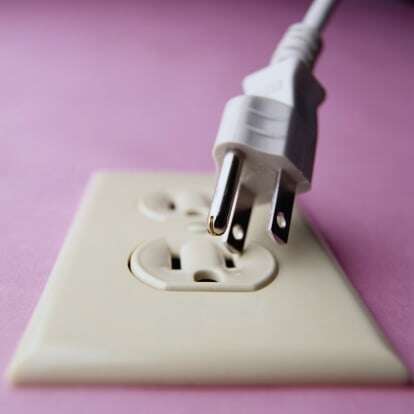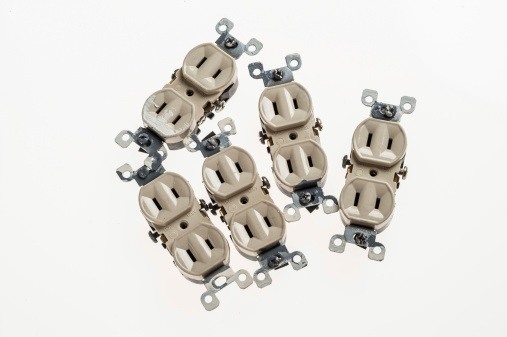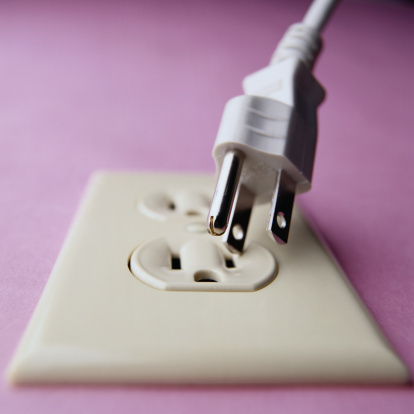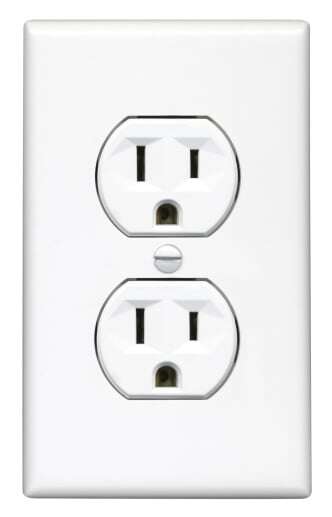 It appears that Experts In Your Home has “tripped another wire” with our readers – and that's a good thing.
It appears that Experts In Your Home has “tripped another wire” with our readers – and that's a good thing.
We alerted you to signs of electrical outlet trouble in two recent articles: “Signs your older home needs electrical repairs” and “Home maintenance tips: Signs it's time for an electrical wiring.”
In the course of inspecting your outlets for obvious signs of trouble, many Experts customers noticed something more: all outlets are not created equal. In fact, many customers found several different types of outlets throughout their homes, “tripping” two fundamentally good questions: What is the difference between these outlets? and When should I hire an electrician to change or update my outlets?
Four types of household outlets
Most homes are equipped with four types of outlets:
- Standard outlets supply 120 volts of electricity and contain holes to accommodate two-or three-pin plugs for computers, cell phone chargers, radios, TVs and other electronics. We'll elaborate on the difference between the two in the next section; it's an important distinction.
- Ground fault circuit interrupt outlets should be installed in bathrooms, kitchens and other places where the outlet could get wet. GFCI outlets are equipped with built-in circuit breakers for your protection. They feature a black button – to test the outlet – and a red button to reset the outlet if the outlet is tripped.
- Dryer outlets feature either three holes for 120 volts or four holes for 240 volts. Building codes now require that all new homes be built with four-hole dryer outlets.
- Range outlets are designed to provide ample electricity for electric ranges, which draw more electricity than other appliances. They also should be wired to a separate circuit breaker. An Experts In Your Home electrician can check for both conditions in your home.
Recognize ungrounded and grounded outlets
If your home was built prior to 1960, you might have many two-hole outlets in your home, which are called “ungrounded” outlets. Then the National Electrical Code was updated and required homes to have a third slot for a ground connection.
When you look at these outlets, you will see two vertical slots and a round hole beneath them. The left slot, which is slightly bigger than the right one, is called the “neutral” slot. The right slot is called “hot” slot and the hole underneath is called “ground,” which is why these outlets are called “grounded” outlets.
And here's the key differentiatior: the ground connection provides a safe route for any electricity that has gone astray in an appliance or electronic device while tripping a circuit breaker. This is precisely why you want to ensure that your most valuable electronics, which should contain three prongs, are plugged into a three-prong, grounded outlet. In this way, you will safeguard them from everything from static electricity to lightning strikes.
Demonstrate short-term outlet safety
In the short term, plug only certain devices into two-prong, ungrounded outlets:
- Coffeepots and other small kitchen appliances
- Lamps
- Radios
- Devices that have two-pronged cords
Do not plug other devices into ungrounded outlets; ensure that they are plugged into three-prong, grounded outlets:
- Computers
- Large kitchen appliances
- Stereo and audio systems
- Surge protectors
- TVs
- Large kitchen appliances
- Other high-end or costly electronics
- Devices that have three-pronged cords
Make a long-term choice
You correctly noted that we said “short term” for a reason. In the long term, the NEC recommends that you (and an Experts In Your Home Chico electrician) can safely address the ungrounded outlets in your home in one of three ways:
- Replace the two-prong outlet with a GFCI outlet and mark the outlet with the words “no equipment ground”
- Install a GFCI breaker in the main electric panel and mark it “GFCI protected” and “no equipment ground”
- Replace your home's two-wired system with an updated three-wired system
We probably did it again: In our effort to inform and educate you, we've probably tripped another wire and got your wheels turning. Before they slow down, contact an Experts In Your Home electrician for a consultation so that we can help you settle on the right long-term outlet solution for you and your home.
For free electrical safety tips, download the eBook below:








